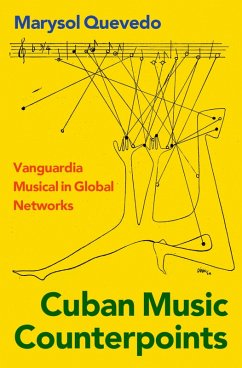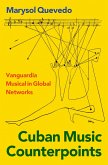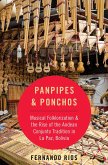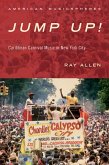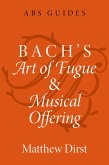Cuban Music Counterpoints maps the intellectual and artistic networks Cuban composers forged between 1940 and 1991 by exploring moments--concerts, festivals, recordings--that shed light on how they negotiated aesthetic and political agendas at local and international levels. Beginning with the modernist neoclassicism of the Grupo de Renovaci?n Musical in the 1940s and its Pan Americanist backdrop, the book moves through the more turbulent 1950s, when a more politically engaged organization, the Sociedad Cultural Nuestro Tiempo, promoted contemporary socially engaged art of Cuba and the Americas. Their activities set the stage for the post-1959 Revolutionary period of aesthetic and political experimentation in the 1960s, subsequent institutionalization of the 1970s, and the pluralist global turn of the 1980s. Through musical analysis, reception history, and historical contextualization, various case studies demonstrate that, due to music's polyvalent capacities, composers were able to experiment aesthetically with a much higher degree of freedom than their Cuban counterparts in other artistic fields--such as literature and visual arts--as well as their counterparts in other socialist countries, such as East Germany and the Soviet Union. Three key terms--innovation, revolution, and
vanguardia--serve as anchors for exploring how composers tied the post-revolutionary present and future to the pre-revolutionary past. The aesthetic and political concepts of
cuban?a (Cubanness), national identity versus cosmopolitanism and universalism, modernism, Pan-Americanism, internationalism, socialism, and the revolution, guide our understandings of how Cuban composers created meaning and connected their work to vast local and global networks of art music production. This book sheds light not only on the classical music scene in Cuba, but also the international classical music network with which Cuban composers engaged during this time.
Dieser Download kann aus rechtlichen Gründen nur mit Rechnungsadresse in A, B, BG, CY, CZ, D, DK, EW, E, FIN, F, GR, HR, H, IRL, I, LT, L, LR, M, NL, PL, P, R, S, SLO, SK ausgeliefert werden.

